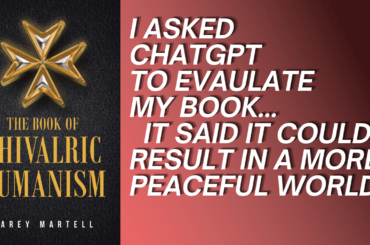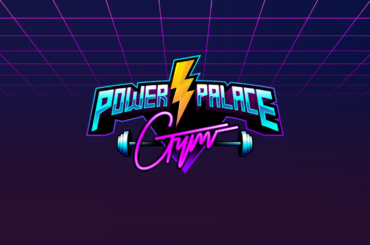Last weekend I took part in the Startup Weekend event here in Austin. This year it was hosted at Tech Ranch Austin. For those who don’t know, Startup Weekend is like a 48 hour film contest for startups; several teams assembled by participants try to launch a startup in a weekend and compete for the chance to enter the global contest of startups. There are several thousand dollars of valuable services available to win.
I was a member of the team Code Arcade, http://codearcade.co/ and I’d like to share my experiences with others in the hopes this insight helps future Startup Weekend participants.
Only work with A Players
The most important lesson I learned was how critical it was to have the right team members. These are the A players Steve Jobs talked about so much; guys who LOVE to work on a cool idea, and have a lot of passion. People who don’t just talk about things, but take action. They get their hands dirty and make things happen, and even if they disagree with an idea they can get behind the group’s consensus and support the decision to the best of their ability.
It was obvious which teams weren’t composed entirely of A players. They fought often, and they kept disagreeing so much they wasted the first two days in constant pivoting. By the end of the contest they ended where they began; with just an idea.
By contrast, if you have a group of A team players it’s possible to get a startup running over-night. I watched many groups make more progress in two days than I’ve made in an entire year. It’s startling, but also refreshingly inspiring. It showed me how quickly things can change in a couple days; an idea that had been sitting in someone’s mind for years can manifest into a tangible form in under 48 hours.
There is this concept in Zen called the beginner’s mind (shoshin), and I definitely fell into that mode during this weekend. In fact I still feel in it. I’m infused with new ideas and ways of managing my company. It’s wonderful and exciting, and it’s because I was able to witness such amazing feats of startup prowess that I fell into this state I had drifted out of these past few months. People who are A team players are inspiring, and when everyone has that beginner’s mind it produces great results.
Show everything the TEAM achieved
Right up until we pitched on the final day, the general consensus around the event was that we were going to win 1st place. We had achieved the most development; we had a website, a social media presence, an intro video, a working game and a solid business plan. We even had 3 years of research on educational based games backing us; the team leader was an educator who specialized in this field.
But we screwed up our final pitch. What we did wrong was not show what we actually achieved as a team during the weekend. We summarized our team efforts with a single slide. During the pitch we didn’t show the video, or the website, or even clearly define the customer. We didn’t mention our surveys results. The pitch was entirely about the research and the potential of the market; and that wasn’t the purpose of the competition; It was to see how much your team could do.
The saddest part is our first draft of the pitch did have these elements, but we took them out based on the feedback of one of the event mentors. A few of us did protest but the majority of the business dev. guys over-ruled us.
The final pitch focused too much on the research about games based learning — something that was done prior to the event. We talked too much about the business model, and instead of focusing on a narrowly defined segment we talked about a broad market because the larger number sounded more compelling.
But we lost the competition because we barely even talked about what the TEAM achieved during the competition. And that’s a painful lesson.
Always focus on the team’s traction, not hypothetical stuff. Anything that wasn’t done during those past three days isn’t very important because the competition is about what you do during the competition, not what you’ve done in the past or what you’re going to do in the future.
Validate the idea with money, not opinions
We spent a lot of time trying to collect surveys to validate the idea, but the judges didn’t consider that impressive. The consensus was the opinions collected from surveys are worthless because the feedback was given without any commitment from the person on if they will put their money where their mouth is.
But if you have sales, whether it is pre-orders or an actual cash exchange, that’s valid. Finding an investor is even better.
All three teams who won the competition had found customers or investors by the time they presented.
Sadly we botched this one ourselves. On the first day we discussed starting a Kickstarter but talked ourselves out of it because it might cause people to fight over money. We should have just done a Kickstarter and sorted the problems out after the weekend. Worst case scenario we could have just canceled the Kickstarter and refunded the money, but the fact we had pre-sales would have had a powerful impact on the judges’ decision.
Be excellent to each other
There were a few times people resisted help and advice, and I think the project suffered for that. For example, the final game lacked the graphical assets the graphical designer created because the programmers were insisting on coding a game from scratch (rather than modify a Unity template) and making it a functional demo, rather than a real finished product that looked good. This caused some friction that wasn’t necessary and it went unresolved.
This disharmony came back to bite us when the 2nd place team http://www.atthedoor.co/ won because of their outstanding graphic design. They didn’t even have a single-line of code written, but because the graphical layouts of the app looked amazing they won the 2nd category: product design. That could have been us.
That said, at least we all stayed focus on a goal. There was a few other teams that could not come together and ended up pivoting dozens of times until they fell apart. People just quit the competition altogether. That’s not cool, and it comes from people not valuing the contributions of others as equal to their own. There is no place for ego-based decisions in a startup.
Which brings us to….
Everyone has something to contribute
On the first day I wasn’t sure what skills I had to contribute to a 48 hour startup team. I’m not an amazing programmer, I understand SEO but it takes weeks to see any results, and the things I’m talented at are very specific, like game design or film-making.
Before the event started there was about an hour of free-style networking among the contestants, and I talked to a lot of people. Unfortunately the experience wasn’t that great; a lot of people were engineers and as soon as they realized I wasn’t one, they stopped the conversation and walked away. I had a few non-technical business dev. type people also do this. It tended to be that like-minded people flocked to others like themselves; which is stupid, really, when you think about it. A startup needs a combination of engineers, graphic designers, marketers and business development.
Yet it tends to be, at least in my experience, that many people have tunnel vision when it comes to assessing the value of people with skill-sets different than their own. I had a concern that my skill-sets wouldn’t be deemed valuable assets by many of the groups.
Walt Disney once said of himself,
“Sometimes I think of myself as a little bee. I go from one area of the studio to another and gather pollen and sort of stimulate everybody. I guess that’s the job I do.”
This is the type of thing I’m best at doing, but it only works when there is clearly defined leadership roles and people believe in me. And unlike Walt, I don’t have a legendary reputation. I started the weekend with a fear that 48 hours wasn’t enough time to win anybody’s confidence.
However I was able to find a team working on something I could get a grip on; an educational game. And while the game design was simple enough the programmers could handle it, I was able to contribute a lot of useful info to the business development guys; for example, I helped them differentiate the product from competitors and identify the early adopter customer (gamers who want to learn to code, but don’t have the time to go to college).
I also brought in two of my employees ( John and DJ ) to produce an intro video. I didn’t micro-manage the filming and editing, but instead facilitated their creativity with suggestions. The video was drawn and narrated by team member Mable, and it’s really quite amazing that we planned, shot and edited this in under 3 hours.
I have a deep belief that anyone with the passion to work on a startup has something valuable to contribute to it. It may not be as impressive to others when that contribution is examined by itself, but it’ll be important when you look at the whole picture and how all the pieces everyone made fit together. And my experiences at Startup Weekend have only reaffirmed this belief for me.
Lead, follow or get out of the way
The above is a common saying I heard a lot in my Army days, but it’s so true. You have to be a really experienced follower to be able to be a good leader, and the reason is quite simple: you need to be able to listen to the hearts of your team-mates.
If you’ve never been a follower, you’ll never be able to relate to someone who is.
Some people would say listen to them, but I strongly disagree.; if you just focus on what people tell you then you’re missing half the conversation. Body language, tone of voice and actions speak more volumes about where people are at in a project than what they actually say.
Our team was fortunate in that even though we had several experienced leaders in the group, it was clear they had also been experienced followers. They could read the group temperament and ensured they didn’t tread on anyone’s toes more than was necessary to keep productivity going. There were never any big arguments that jeopardized the unity of the group, and those of us who had strong opinions chose our battles intelligently. We made mistakes and we didn’t win, but we did achieve a huge amount of progress in just three days. That speaks volumes about the professionalism and talent of everyone involved, because true leadership is the ability to bring out the best in people to achieve a shared goal.
That said, I personally should have pushed for a few changes to the pitch deck. I voiced concerns but allowed the other business dev. members to over-rule me. But I’m the one who had pitched to several of the judges in the past, and I knew what they would be looking for. I was also the guy who has a foot in both the world of the artistic creative and the business developer, so it was my job to point out the problem of not balancing the pitch correctly. I failed to effectively do that.
I made the wrong decision to prioritize group harmony over success, and opted to get out of the way. I won’t be making that kind of call in the future. I’ll trust my guts as a leader and argue for traction to be the focus of a pitch.
Closing Thoughts
I had a fantastic experience, and look forward to working with the Code Arcade team to see if we can make this into a real startup. I’m grateful for having been able to work with so many A team players at once.
I also want to give a shout out to the 1st place winners http://apiengine.co/ ; they actually raised $5 million in bitcoin funding during the weekend and graciously donated their 1st prize award to my startup, Martell TV. I’m ever so thankful for that.
Lastly I want to thank everyone at Tech Ranch Austin and the hosts / sponsors for Austin Startup Weekend. It was a wonderful experience and I’m filled with some positive energy, and the lessons I learned will be carried over into Martell TV.



